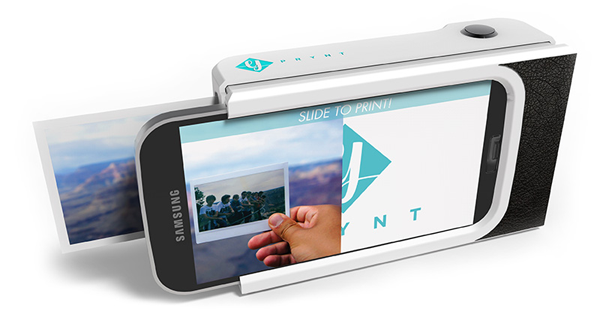What’s old is new again. A proposed new phone case would use Polaroid-like technology to allow you to print pictures immediately after taking them.
Prynt appears to be very much at the ideas stage as the makers plan to demo the technology at CES in January and then launch a Kickstarter with a planned pre-order price of $99.
Precise specifications aren’t available, but it appears to be only a little larger than an average smartphone in terms of height and width, but perhaps an inch-and-a-half to two inches thick. There are no details yet on what size phones it can work with and how much adjustment the case allows. The connection is physical rather than via Wi-Fi or Bluetooth, which likely means there’ll be different models for the supported iPhone and Android handsets.
The current prototype model only houses one sheet of photo paper and takes 50 seconds to print. The plan is for the retail version to house 30 sheets and take 30 seconds to print.
It looks as if the makers of the device have come up with a neat interface: sliding an image to the left will trigger the printing, with the photo emerging from the left of the camera as if you had pushed it out. One big limitation is that it appears you must have the phone in the case and specifically shoot a picture for printing (reviewing it before printing) rather than being able to print previously stored images.
They’ve also revealed another neat, if gimmicky, feature for the associated app. When you take a shot, your phone can also shoot a short video. Once the picture is printed, any time you hold it in front of your phone’s camera, the video will play, “bringing the picture to life.”
It’s hard to see the device having mass market appeal, particularly at $99 or more. It has some benefits over a traditional Polaroid, in that you get the instant gratification of a printout, but don’t have to worry about wasting photographic paper on poor-quality shots.
However, you would be giving up another key point of the Polaroid, namely that you can guarantee there’s only one copy and you don’t have to worry about somebody getting hold of negatives or a compromising digital image showing up online.

